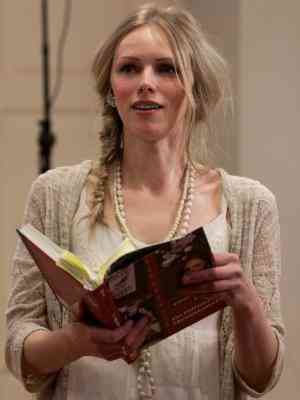
John Taylor, the author of into the Heart of European Poetry (Translations) and translator of several French poets writes about Kristiina Ehin’s bilingual selection of verse, rendered from the Estonian by Ilmar Lehtpere as it appeared from the Bitter Oleander Press.
The “1001 Winters” translations from volumes entitled The Drums of Silence (2007), New Moon Morning (2007), Burning the Darkness (2009), Scent of Your Shadow (2010) and The Final Going of Snow (2011).
Taylor writes that so much work all at once shows the coherence and the dichotomous vision of the poet, born in 1977, who is attentive to “this (side) as to the “far side of seeing”.
Her symbolic lyricism is often based on Baudelairean correspondences. Nature is omnipresent.
Configurations of natural elements represent thoughts, feelings, behavior, significant events, or even the entire personality of the narrator:
“I sleep as mud in the forest at the bottom of lakes ditches
as mire in deep hollows in marshes;
on blind eyes or decaying roots mould deadnettle blossoms and ivy
I am made but a big thistle was my heart a thistle was my heart.”
He states that there is a fairytale like quality characterizing many of Ehin’s poems.
Fearfully fine snow falling
I am a red she-wolf
and all your candles are burning
here in this chamber
between sheepskins only an hour
or two are left and . . .
with the snorting of black stallions
with the crackling of life’s most beautiful frostflowers
darkness comes after us
along tram lines
along telephone lines
along the city of restless joy . . .
Others, more complex, blend allusions to the contemporary world into a similar kind of fairytale or fabular ambience. As a general rule, Ehin intensifies or expands sensation into symbolism, while giving the appurtenances of the real world a mythic or cosmic setting. Occasionally she focuses on a contemporary world from which Nature has been banished or less present and pristine. This shift in vision can be spotted in telltale imagery recalling the post- or the pre-Russian period, Estonian became independent form the USSR. Sometimes Ehin underscores this.
Still a deeper evolution can be observed in poems about childbearing conveying a desire to break out of language, and to attain the factuality of aliveness.
Time devoured my old ears
with which I listened to the cosmos
I’m already growing new ones
delicately sprouting earflowers
with which to climb
up along you
night after night
everything ever more sweetpea
ever more here and now like moist anemone.
http://www.ronslate.com/john_taylor_1001_winters_poems_kristiina_ehin
















